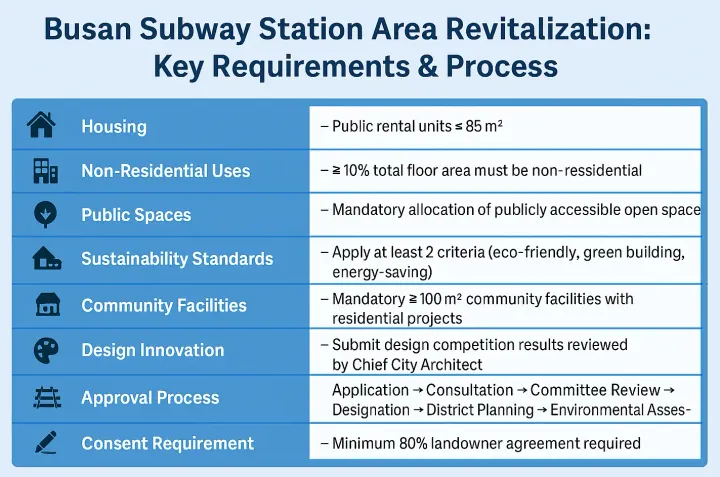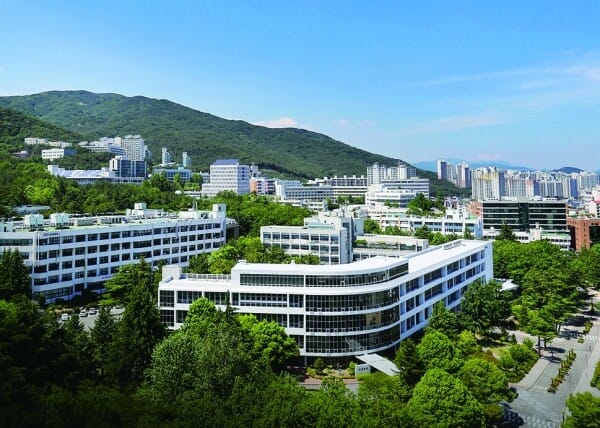Busan Announces ₩2.1 Trillion Job Plan, but Effectiveness Remains in Question
Despite bold goals, Busan’s job strategy draws criticism for repeating past patterns without transparent results. Analysts call for structural reform, outcome tracking, and deeper alignment with industry needs.

Busan, South Korea — Busan City has announced its 2025 Comprehensive Employment Policy Plan, pledging a record ₩2.1 trillion investment aimed at creating over 192,000 jobs this year. The initiative, which seeks to boost the city’s employment rate to 67.1% for working-age adults and expand job access across youth, women, and senior populations, was introduced under the banner of building a “future-oriented, employment-centered city of happiness.”
The policy outlines 16 implementation projects across four major strategies, covering areas such as digital workforce training, green transition, regional industry revitalization, and tailored employment support for vulnerable groups. This includes continued backing for youth career support schemes, public employment for seniors, digital innovation programs, and subsidies for startups and small businesses.
Despite the scope and scale of the plan, critics and labor policy experts are raising concerns that Busan’s annual job policy announcements are becoming formulaic, with limited transparency or evidence of lasting results. The structure of the 2025 plan bears strong resemblance to previous iterations from 2023 and 2024, many of which promised similarly high job creation figures but lacked comprehensive follow-up evaluation.
According to the city’s own employment data, Busan’s working-age employment rate rose only marginally from 66.9% to 67.1% over the past year, despite over ₩2 trillion in cumulative job-related spending. The youth employment rate, a key indicator for the city’s labor vitality, remains under 47%. While government statistics report progress in meeting quantitative goals, many of the jobs counted are fiscally supported, short-term, and concentrated in public sectors or training schemes that may not reflect long-term labor market improvement.
A 2024 report by the Busan Development Institute noted that average monthly wages for Busan-based youth remain nearly ₩270,000 below the national average, and more than half of young workers surveyed reported that their current jobs were either mismatched to their education or not intended as long-term employment. These findings point to ongoing issues of job quality, career mismatch, and wage stagnation that are not fully addressed in the city’s planning documents.
In its 2025 plan, Busan again lists an ambitious number of employment opportunities—nearly 193,000—but categorizes all of them as “fiscally supported employment.” This includes over 87,000 jobs created directly through public funding and over 105,000 in subsidized private-sector roles. Without clear performance metrics or outcome tracking, it remains difficult to determine whether these roles represent sustainable employment, career-building opportunities, or merely short-term economic relief.
Experts have also pointed out that, while the city continues to invest in sectors such as fintech, green energy, and advanced manufacturing, there is a lack of coordination between industrial development and job policy. For example, Busan’s strategic vision to become a digital financial hub—catalyzed by the relocation of Korea Development Bank—has yet to be matched by a robust local talent pipeline or integrated workforce plan. Similarly, the newly announced ₩2.3 trillion “Green Industrial Transition Fund,” expected to be launched this year, does not include specific forecasts for job creation or regional labor impact.
Critics are urging the city to adopt more rigorous and transparent employment policy evaluation, including long-term job tracking, wage progression metrics, and the integration of employer demand data. They also call for greater alignment between job training programs and the evolving needs of Busan’s industrial base.
As Busan continues to position itself as a global smart city and innovation hub, its employment strategy remains a key test of whether that branding translates into meaningful economic outcomes for residents. For now, the 2025 employment plan signals ambition—but its ultimate success will depend not on the size of its budget, but on the structure, sustainability, and accountability of its results. Without those reforms, critics warn, Busan risks repeating a familiar cycle: bold annual announcements, followed by modest gains and mounting questions.



Comments ()